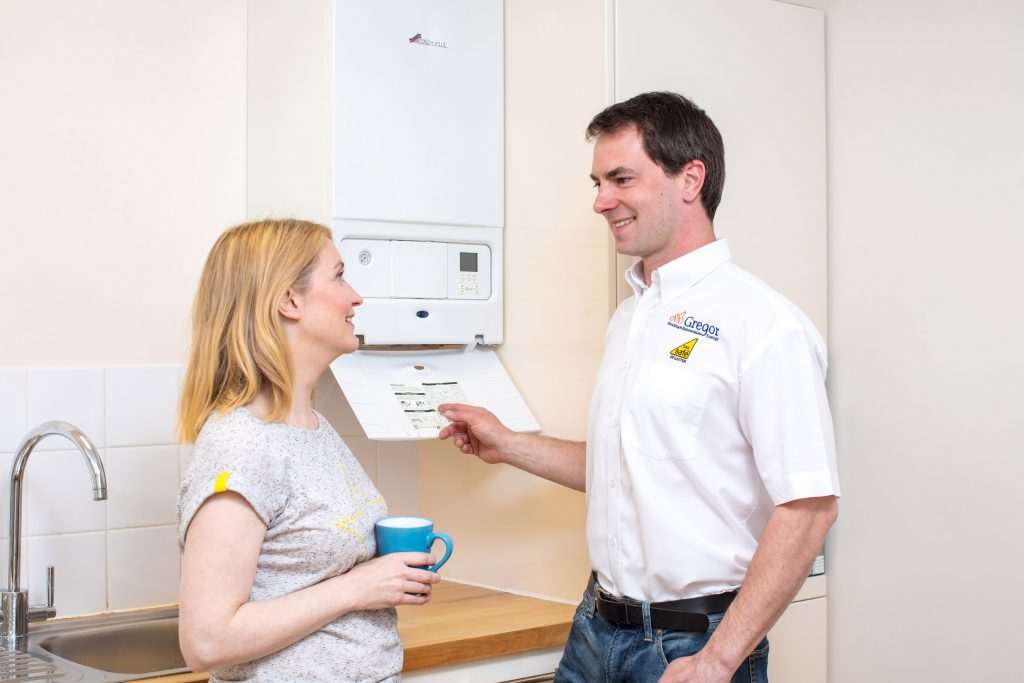Preparing your boiler for winter

Having your boiler break down during the winter can be a total disaster, especially if it’s particularly cold. But it’s possible to prevent a breakdown. In this article, we’ll go over some of the things you can do to ensure your boiler is working at full efficiency before the winter weather sets in.
Bleeding the Radiators
It’s of key importance you bleed your radiators when you first turn on your heating system and that you regularly bleed your radiators. This is because air can build up inside of the heating system (especially older ones) if they aren’t used for a while. This creates cold spots in the radiators. This renders the radiators significantly less effective, reducing your homes energy efficiency and costing you in the long-term.
If you aren’t comfortable bleeding your radiators, you can have a professional heating engineer do it on your behalf.
Checking the boiler pressure
By checking your boiler pressure on a regular basis, you can save a huge amount of money in the long run.
If the pressure isn’t at the correct level your boiler can suffer serious issues and it can end up having a terrible effect on the rest of your homes central heating.
Low boiler pressure will not necessarily cause damage to the boiler or your central heating system – it will however badly affect the performance of the boiler. The lower the pressure, the harder it must work to heat your home. This means you are paying significantly more to keep your home warm, but it also means your home will take longer to warm up.
In the long term however low boiler pressure can end up damaging the longevity of your boiler.
Every boiler is different. The age, make, and model will help to determine what the pressure should be. However, most manufacturers maintain that 1.3 is the optimum cold pressure for a boiler. Some modern boilers have digital displays, but most boilers use a dial (which will display a 1-4 reading). This reading will have green and red sections. Green represents an optimal pressure. Red indicates a sub-optimal pressure.
A boilers pressure reading is liable to fluctuate depending on whether the heating is on or not. You should check the pressure when it is cold, as the water begins to expand and changes the dial as it gets hotter. If the heating is off, when you check the pressure then the needle should be in the green section.
As always, it’s vital that you check the boiler manual.
Low pressure can be caused by a wide range of issues, from damaged components to easier to fix issues. Getting in contact with an experienced engineer is always the best approach.
Insulating the Condensate Pipe
One of the biggest issues boilers suffer during the winter are frozen condensate pipes. This is a relatively common issue and results in a huge number of callouts. These are liable to be costly and can easily be avoided if you take the appropriate steps.
Gas condensing boilers are incredibly efficient because they reuse the heat present in the flue gasses to warm up more water. This reduces the overall gas usage. However, this process causes a big temperature drop that creates additional condensation. This condensation is drained via an outdoor pipe and it can (in lower temperatures) freeze. Frozen water in a pipe not only will stop the boiler working properly, but can severely damage the pipe and result in leaks.
The easiest way to prevent an outdoor condensate pipe from freezing is to ensure it is covered with waterproof cladding. You’ll need a gas safe engineer to make this adjustment.
Have your boiler serviced every year
Getting your boiler serviced is one of the most important
It is vital to have your boiler serviced on an annual basis.
Firstly, this keeps your boiler under warranty, which is incredibly important. If your warranty is invalidated, you’ll lose the benefits that come with it. Many manufacturers guarantees will expect you to have a gas safe engineer inspect and service the boiler.
But also, a service ensures the boiler is in full working order. An engineer will clean the components and can also replace any worn or damaged components. This can prevent serious problems before they become an issue.
It’s good to get an annual service done ahead of the winter, during the summer or autumn. This is because engineers are far less active during this time and so it’s much easier to arrange the work. Furthermore, it means if there’s any issues they can be detected early on.
If you haven’t had your annual CHS Boilers Glasgow service, it is important to get it organised asap. This can save you a huge amount of time, effort, and money in the long run.